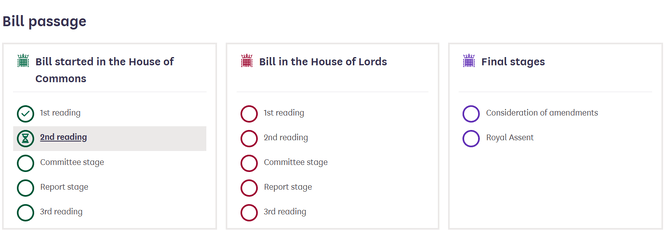The Planning and Infrastructure Bill had its first reading in the House of Commons 11th March 2025.
The Planning and Infrastructure Bill, first mentioned in the King’s Speech in July 2024, has landed in the House of Commons and contains a lot of proposed changes for the planning system. The Bill is another piece of the planning reform puzzle aiming to streamline the planning process, alongside the NPPF which was released in December 2024. The Bill has been devised to support Labour’s target of delivering 1.5million new homes in England and fast-tracking major infrastructure projects.
The Bill gives greater guidance and highlights new procedures across some key areas of planning. A quick run through on the major points below:
Decision making
The Bill proposes to introduce mandatory training for committee members and mayors, mandate the size of planning committees, aim to reserve planning committees for more complex decisions and create a national scheme of delegation in order to create consistency across local authorities.
Prior to the Bill being released, a working paper was released suggesting that there would be a review of the statutory consultees to reform the consultee process and speed decision making in planning. The consultation included removing some bodies from being a consultee, including Sport England, Theatres Trust and The Gardens Trust.
Strategic Planning
The Bill re-introduces strategic planning to align development needs with infrastructure requirements across multiple local planning authorities, fostering coordinated growth. A Strategic Planning board is being suggested, and Spatial Development Strategies would be implemented to monitor housing and employment figures and identify opportunity areas for growth.
NSIPs
The Bill aims to enable faster delivery of NSIPs by reducing pre app consultation stages and streamlining the Development Consent Order process. National Policy Statements would be updated every 5 years to reduce the opportunity for judicial review challenges.
Energy infrastructure
The Bill will increase powers to deliver more renewable energy schemes. The Bill intends to reduce the licences and permissions needed for new EV connections. There will be reductions on energy bills for residents living near pylons. There will be changes in planning and grid connections, which will see a departure from the current first come, first served approach.
Nature recovery
Natural England will be responsible for devising Environmental Delivery Plans, detailing conservation measures and improvements to address the impacts of development within a designated local area. Developers within that area would pay a nature restoration levy to enable these improvements.
This fund offers developers an alternative method to fulfil their environmental obligations associated with new developments. Instead of implementing on-site mitigation measures, developers can contribute financially to the fund.
This circumvents waiting for assessments which can often only take place at certain times of the year. The fund is thought to allow developers to pool resources and increase the local contribution to restoring habitats, but it is unclear how well the mitigation matters will work compared to developed-led on-site habitat improvements, informed through site specific assessments.
Development Corporations
Development Corporations have a long history of planning and building new towns, garden cities, and extensions. The Bill will give greater powers to the development corporations to aid infrastructure delivery and local services within new communities.
Compulsory Purchase Orders
The bill empowers local authorities to acquire land for development at reduced costs by excluding "hope value" from compensation, aiming to lower development expenses. Where there are no objections, decisions can be made by inspectors, councils or mayors rather than the Secretary of State.
Fees
LPAs would be able to set their own fees and ring-fence costs to resource planning authorities. The Secretary of State will be able to intervene if fees are not considered appropriate.
Timing
The second reading is scheduled in the House of Commons for the 24th March 2025. Due to the speed in the progress of the Bill, with only 2 weeks between the first and second reading, it is estimated that it won’t be too long before the Bill reaches royal assent, with online commentators speculating this could be before Parliament breaks for summer this July, a year after the first mention of the Planning and Infrastructure Bill in the King’s Speech. Track the passage of the Bill and updates through the Parliament’s website.
WEA Planning are advising clients on the upcoming changes to the planning process and the impact on development and decision making. We would be happy to respond to your query today.
